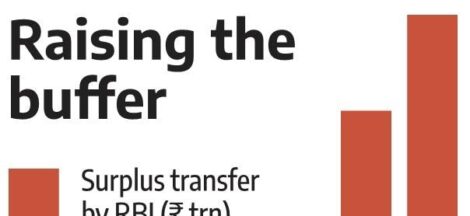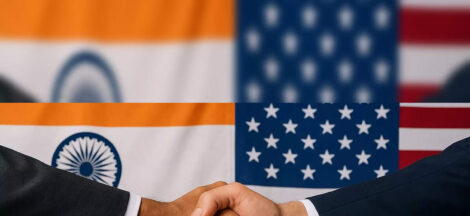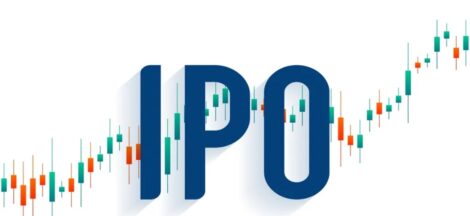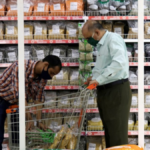NEW DELHI: India is looking at the potential revenue losses of Rs 63,000 crore per annum as tariffs for imports of gold, silver, platinum and diamonds will become zero in coming years under the India-UAE comprehensive economic partnership agreement (CEPA) according to a study.
Apart from revenue loss due to duty concessions in CEPA along with other regulatory changes like permission to private traders to import bullion directly through Gift City in December will also disrupt the industry, the report by trade policy think tank Global Trade Research Initiative (GTRI) said.
Gold and Silver imports were previously regulated, with only agencies nominated by Directorate General of Foreign Trade (DGFT) and Reserve Bank of India (RBI) such as banks allowed to import. However in Dec 2023, the Department of Revenue allowed Gift City to enable private traders to import bullion. This has resulted in a situation where silver is being imported into India on concessional duties through this route even if they do not seem to meet the value addition norms. This raises the strong possibility of money laundering.
To supply silver granules to India, Dubai firms import silver bars from Russia and other countries, convert them into granules, and claim a 3.5% value addition in this process. Less than 0.5% value addition accrues in this process.
Since December 2023, all silver imports from Dubai at concessional tariffs have been cleared through the customs at Gift City exchange. These imports attract 8% duty as against 15% from other sources. The key concern is how imports cleared through Gift City meet the rules of origin requirements specified in the India-UAE FTA when importers from other ports fail to meet these, the report said.
“Business is shifting from established importers like banks authorised by RBI and DGFT to many unscrupulous private traders. Reputable global suppliers of bullion are being replaced by Dubai-based suppliers, many of which are owned by linked Indian importers,” the GTRI founder Ajay Srivastava said.
In gold also the CEPA provisions are creating a situation where trade is shifting to UAE and the government stares at revenue loss. Currently, gold can be imported from Dubai at 5% duty if the alloy contains 2% platinum. It will drop to zero in three years. This bonanza comes from the Customs product classification rules that any alloy containing 2% or more by weight of platinum is treated as an alloy of platinum. This means that firms can import an alloy consisting of 98% gold and 2% platinum, and it will be classified as a platinum alloy. “Current tariff on platinum is 5% which means 10% arbitrage (import duty on gold is 15%). In next three years unlimited Gold can be imported at zero tariff as platinum alloy containing 98% gold,” the report said.
“The urgent need to review CEPA provisions to prevent the exploitation of tariff concessions for gold imported as platinum alloy.”
In diamonds and jewellery too disruptions will come from the CEPA. Under the India-UAE CEPA, cut and polished diamonds can be imported at zero duty if they meet a 6% value addition in Dubai. India’s global exports of cut and polished diamonds are valued at $15.9 billion. The removal of the 5% tariff will put immense pressure on the margins of the domestic diamond industry.
Additionally, importers and traders will dominate the market, further putting domestic producers at a disadvantage.
“The removal of tariffs could lead to a decline in the domestic industry and a shift in processing activities to countries like China,” GTRI’s Srivastava said. China is keenly welcoming Indian expertise in this area, which could lead to a shift in the diamond processing industry away from India, he said.
Under the India-UAE CEPA, India agreed to reduce tariffs on gold jewellery by 1% each year, from 20% to 15% over five years, with a tariff rate quota (TRQ) or import limit of 2.5 tonnes. The current tariff is 17% with a TRQ of 2.3 tonnes. However, in the 2023 budget, the government increased tariffs from 20% to 25%, creating a higher tariff arbitrage under CEPA. This means there is now an 8% tariff difference, which will increase to 10% in the next two years.
This high tariff arbitrage has led to a massive increase in India’s jewellery imports from the UAE, which have risen by 290%, from $347 million in FY23 to $1.35 billion in FY2024.
“The trades conducted at the Gift City exchange lack transparency, raising serious concerns about pre-arranged deals and invoice manipulation. The Gift City exchange urgently needs a CAG audit, and its licence should be suspended until the audit is completed,” the report said.
Source: The Financial Express




 Q2 Inflation Seen To Top RBI Forecast By Up To 50 Basis Points
Q2 Inflation Seen To Top RBI Forecast By Up To 50 Basis Points 